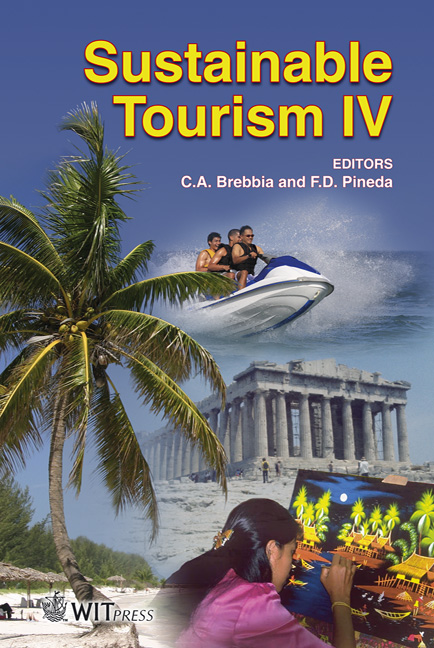Influencing Community Mindsets: The Role Of Outreach Programs In Achieving Urban Sustainability
Price
Free (open access)
Transaction
Volume
139
Pages
9
Page Range
479 - 487
Published
2010
Size
4,385 kb
Paper DOI
10.2495/ST100411
Copyright
WIT Press
Author(s)
I. Navis, S. Conway, R. Lucchesi, J. Roberts, A. Wadhwa, P. Washeba & R. Cameron
Abstract
Las Vegas, Nevada, is an emerging leader in urban sustainability. A large component of bringing change at a metropolitan scale comes from targeting behavioral changes through community education. This paper presents two such initiatives for mass outreach being employed in the Las Vegas valley. While completely distinct from each other in their delivery methods, these initiatives explore local technologies and region-specific information disseminated to the public as a means for enabling action. The Las Vegas Springs Preserve (the Preserve) is a 180-acre cultural institution in the heart of the valley, which provides guidance and vision for sustainable living to the community. Using it as an example, a discourse is offered about what sustainable tourism means in the peculiar setting of Las Vegas, where tourism has historically been the primary driver in shaping local culture. The very inception of modern-day Las Vegas can be accounted to the onset of gaming that forms the backbone of the tourist industry. Unlike other tourist-driven economies where tourism is typically driven by the unique history, culture or natural resources offered by the place, the history of tourism in Las Vegas is the history of Las Vegas. Thus, ‘sustaining’ tourism so as not to harm the culture that is defined by it then becomes a self-closing loop. In such a setting, tools designed to bring behavioral shifts are posited as purposeful agents of change and become the overarching connectors leading to inter-sectoral dialogue, influence urban policy, and create a positive ‘feed’ into the existing culture; an inside-out transformation. This paper explains the architectural
Keywords
community involvement, mass outreach, tourist-driven economy, living systems, local technologies, sustainable tourism, behavioral changes, community education, carbon counting, GIS technology, energy use, housing stock, carbon coefficient





